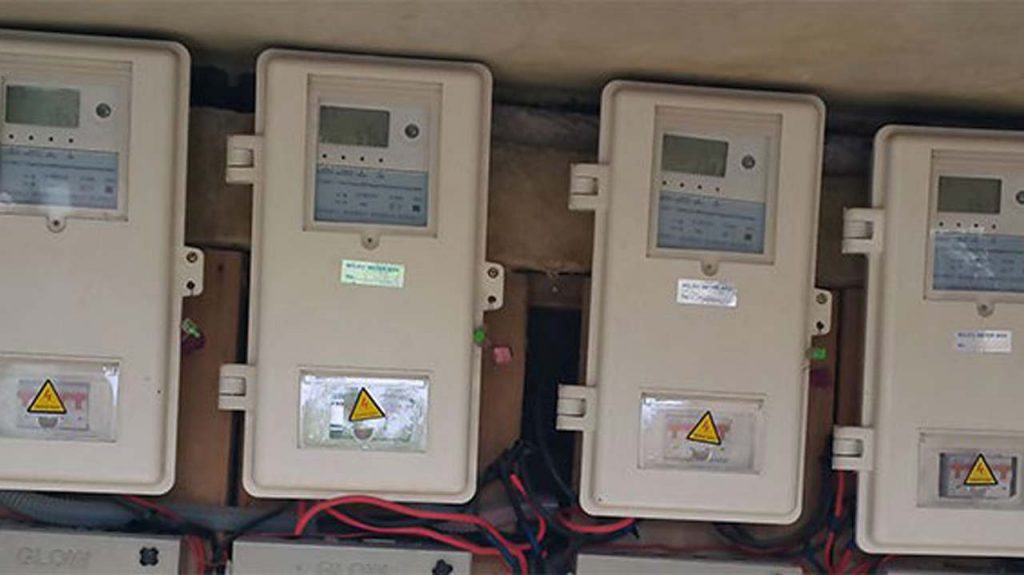
*Electricity meters.
OpeOluwani Akintayo
Lagos — The total billing to electricity consumers by the eleven DisCos rose to ₦182.8billion in the first quarter of 2019.
NERC’s Q1 report for 2019 said out of the N182 billion, only an aggregate collection of ₦116.9billion, representing 64.1% collection efficiency was achieved, a 4.1 percentage points decrease from the last quarter of 2018.
“The financial viability of the NESI is still the most significant challenge threatening the sustainability of the electricity industry”, the Nigerian Electricity Regulatory Commission, NERC said in a note.
As reported in the preceding quarterly reports, NERC explained that the liquidity challenge is partly due to the non-implementation of cost-reflective tariffs, high technical and commercial losses exacerbated by energy theft, and consumers’ apathy to payments under the widely prevailing practice of estimated billing.
The level of collection efficiency during the quarter under review indicates that a sum of ₦3.6 out of every ₦10 worth of energy sold during the first quarter of 2019 remains uncollected as and when due.
The severity of the liquidity challenge in NESI was further reflected in the settlement rate of energy invoices issued by the Nigerian Bulk Electricity Trading, NBET, and the Market Operator, MO to DisCos, as well as the payment by special and international customers.
During the first quarter of 2019, the eleven DisCos were issued a total invoice of ₦190.1billion for energy received from NBET and for service charge by the MO, but only a sum of ₦52.8billion, 28% of the total invoice was settled, indicating a significant deficit of ₦137.3billion.
Whereas the collection efficiency ranges from 40% (Kaduna), 50% (Jos) to 84% (Ikeja), 60% (Kano), 49 % (Port Harcourt), 49% (Yola), 51% (Benin), 70% (Abuja), 69% (Enugu), 60% (Ibadan), and 80% (Eko), remittance performance ranges from 10% (Jos) to 43% (Ikeja), 13% (Kaduna), 15% (Kano), 18% (PH), 20% (Yola), 26% (Benin), 28% (Abuja), 30% (Enugu), 32% (Ibadan), and 43% (Eko).
However, It is noteworthy that tariff shortfall may have partly accounted for the observed low remittance by DisCos.
The figures provided by NERC showed that, adjusting for tariff shortfall, DisCos’ total remittance to the market (NBET and MO) during 2019/Q1 averaged 63% and ranged from 35% (Kano DisCo) to 86% (Ibadan DisCo), 43% (Kaduna), 48% (Jos), 52% (Abuja), 54% (P/Harcourt), 60% (Enugu), 63% (Benin), 69% (Ikeja), 74% (Yola), and 80% (Eko).
This clearly indicates that regardless of the prevailing tariff shortfall DisCos’ remittance is still significantly below the expected threshold.
To ensure business continuity and improve sector liquidity therefore, NERC said DisCos must improve on efforts towards reducing their ATC&C losses.
During the same period, the invoices issued to Ajaokuta Steel Co. Ltd (designated as special customer) and international customers (i.e., Societe Nigerienne d’electricite – NIGELEC and Communaute Electrique du Benin–CEB) were ₦0.3billion and ₦12.8billion respectively. However, neither NBET nor MO received payments from the special and international customers during the period under review.
The Nigerian government has continued to engage governments of neighbouring countries benefitting from the export supply to ensure timely payments for the electricity purchased from Nigeria.
While the low remittance by DisCos to NBET and MO is partly attributable to the prevailing tariff shortfall, NERC advised the DisCos to improve on efforts towards reducing the technical, commercial and collection losses to consequently improve sector liquidity.
To address the remittance issue and as part of the review of DisCos’ viability as a going concern, the Commission said it has met with some DisCos to review their performance and respective comprehensive strategy towards addressing their operational challenges.
It also hinted on finalising a framework for minimum remittance that would ensure a fair and equitable distribution of market revenues as a further initiative towards addressing the fragile financial standing of the electricity market.
As noted in the preceding quarterly reports, another major initiative towards improving revenue collection and remittance in the Nigerian electricity supply industry is the provision of meters to all registered end-use consumers of electricity.
To this end, the Commission said it had continued to monitor DisCos’ process of procuring Meter Asset Providers, MAP in compliance with the provisions of the MAP Regulations.
The MAP Regulations issued by the Commission in March 2018 aims to fast-track the roll-out of end-use meters through the engagement of third-party investors for the financing, procurement, supply, installation, and maintenance of electricity meters




No comments:
Post a Comment